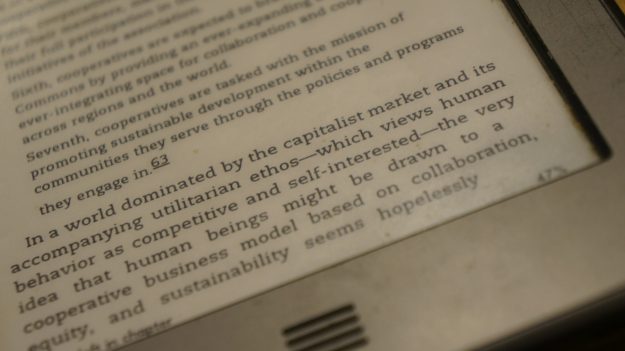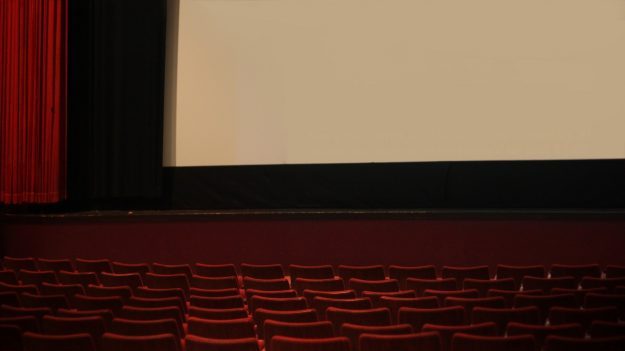A part of any person’s education involves reading a lot of books, but an odd refrain is that Americans are reading less and less with each passing year. And if you look at traditional media outlets, it is often treated as a cause for alarm. 23% of Americans Didn’t Read A Book In The Past Year! Our culture is getting dumber! People just don’t appreciate fine art anymore!
It may seem disheartening to see headlines like that, but it’s time to propose an alternative way of thinking about the madness. What if all of these issues are merely the result of a failure to adapt reading to the modern world? With that in mind, here are some key principles that readers and writers may have missed.
1. Are Books Overpriced?
It’s no secret that books are competing with many more avenues of entertainment than in the past. Our parents may have had television, movies, and books to pass the time, but we added onto the sheer diversity of entertainment with internet shows, video games, and more interactive mediums like virtual reality. Each of these is an art form and should be cherished as such, but what do they all have in common to the average consumer?
The cost per hour of entertainment provided.
While books may be cheaper than most forms of entertainment, the possibilities of modern gaming and the Internet present a problem to the industry. Games like The Lord of the Rings Online, The Elder Scrolls, and Crusader Kings II allow players to plunk down $60 and get lost in new worlds for hundreds, if not thousands, of hours. In a similar manner, new services like Youtube and Netflix let people get involved in thousands of hours of content for the low price of $0.
Can writers compete with that? Can any other medium?
2. Adaptation Syndrome.
Apart from price issues, books may also be suffering because of the direct influence of Hollywood. While it is every writer’s dream to bring their book to the big screen, we have to ask ourselves if it can be a problem. After all, reading is an experience that relies mostly on imagination and the control of the text over the mind that is experiencing it.
That is not so with movies or television.
Stories on celluloid are visual, more easily digestible, and present a window to another world that is right in front of your face. If you think about it, that allows an audience to get a little bit more involved in the experience. They don’t have to think about what a character looks like because he/she is right there, so they can concentrate on how they feel and think over the course of the plot.
There’s also the added issue of why anyone would want to read the book after they’ve seen the movie or show. If it stayed faithful to the novel, why would they cough up another $8-25 to experience it again? If it is loosely based on the source material, what forced the writers of the story to change it in the conversion process? Should a potential reader care?
3. Dude, Where’s My Innovation?
There are too many sequels and remakes! Call of Duty is still on an annual assembly line! Cop shows are just repeating the same old stories with new characters!
You may have heard at least one of these complaints in your life, but books are not all that different. Like the rest of pop culture, it can easily fall into the trap of putting the same brands on a yearly assembly line with some minor differences in the finished product. If you throw a stone in a book store, it’ll eventually hit a set of detective stories, romance novels, or other content that reinforces this point.
There’s nothing wrong with a free choice in the marketplace, but it does call the concept of risk aversion to mind. If readers don’t branch out their habits and take a risk on new ideas, writers won’t have a financial incentive to experiment. And if writers just keep putting out the same old thing, the medium suffers.
Conclusion.
The written word will not be going away anytime soon, but there are plenty of questions to ask about it as we push further into a new millennium. Will stories begin to incorporate more interactive elements? Can the medium avoid creative stagnation? How will it face the oncoming storm of new entertainment options?
There are no easy answers to these questions, but the least we can do is start a discussion in the comments below!





You’ve echoed many of my own sentiments here. I have a particular dislike for “get on the gravy train” writers who strive to imitate whatever seems hot at the moment. It’s brought us an unfortunate number of novels about treadless tropes such as vampires, werewolves, zombies, et cetera ad nauseam infinitam. But then, genuine originality will never be commonplace, and these days it seems to take little more than a word processing program to style oneself a writer.
A part of the problem is that those writers still have a business to run. They could still put their own spin on those tropes, but that might not be enough.